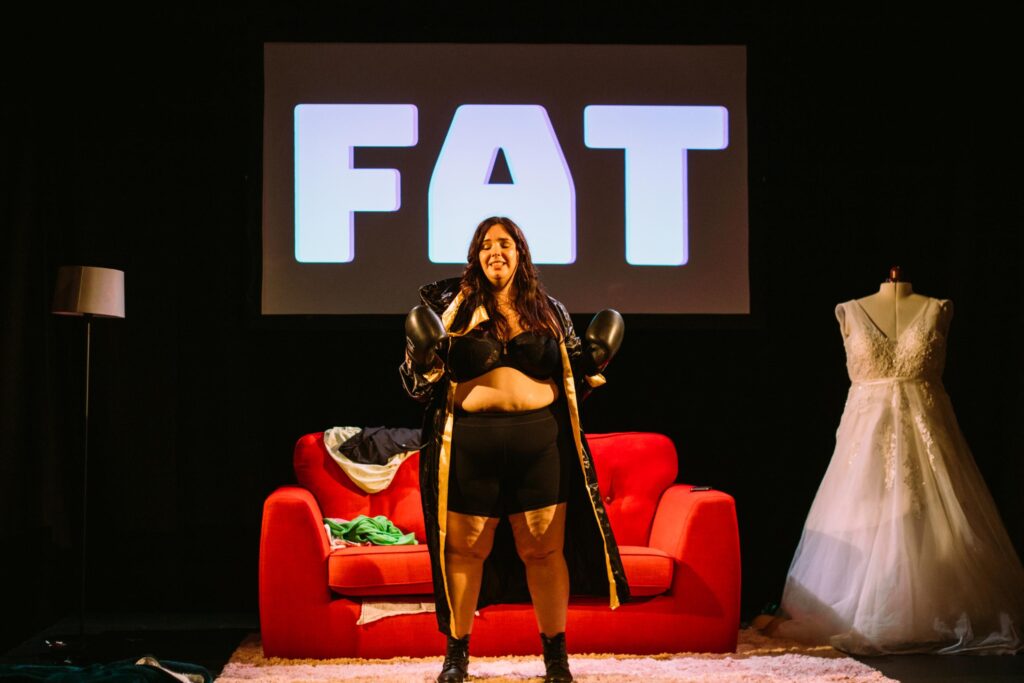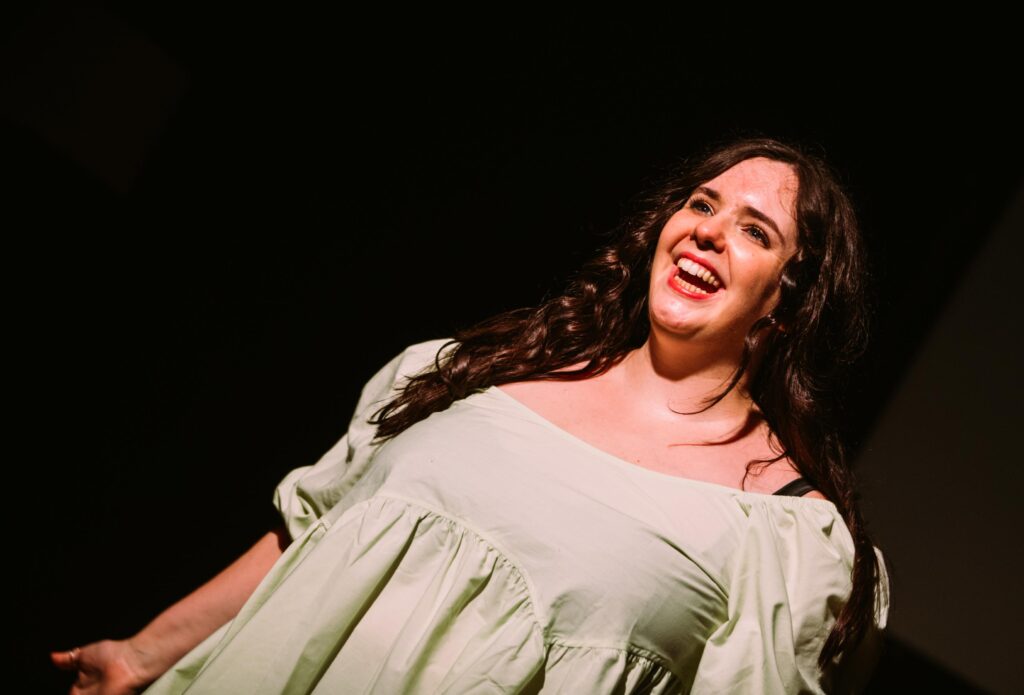
It was while on honeymoon in 2018 that Rachel Stockdale first had the idea for Fat Chance.
Arriving at a restaurant in Lake Bled with her new husband, she had allowed herself the small luxury of eating carbs again after months of dieting to ensure she could zip up her wedding dress.
“A table for two?” The waiter said, and with a glance towards Rachel’s Spanx-free stomach, quickly added: “I see soon it will be a table for three.”
“I could see my husband was silently pleading with me not to kick off,” says Rachel now, almost six years on and about to embark on a national tour of her one-woman show about the fat-shaming she’s been subjected to since her teens.
“I was ranting at him about it and he told me to write it down. I typed out a long text message to my friend there and then, and she replied saying, ‘You have to make this play’.”
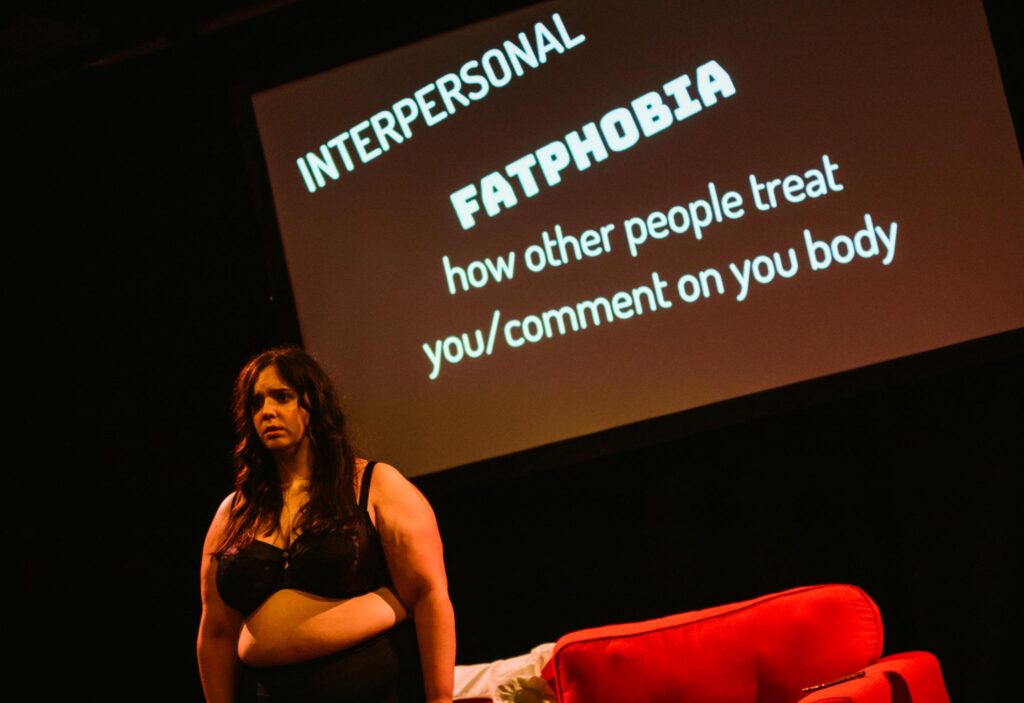
The incident on her honeymoon was just one of a chain of events throughout Rachel’s life in which she was made to feel like she didn’t belong.
She has memories of the school nurse telling her she was overweight, of visiting food banks and being slightly embarrassed of her mum’s car. But it wasn’t until she started to seriously consider a career in performing arts that she realised who she was might actually hold her back.
Growing up in Middlesbrough, in a single-parent family which she describes as “benefit class”, Rachel first decided she wanted to be an actor after watching the Spice World movie at the age of seven.
“I really loved that they represented more than one thing, and that in the movie they acted, sang and danced,” she says. “That was the dream.”
- Read more: North East writers take centre stage for Live Theatre’s new season
- Read more: Celebrating a switch in power
A bookworm, who used reading to escape from school bullying, Rachel’s granddad enrolled her in performing arts class on a Friday evening and she started to come out of her shell. Soon she was singing solos and getting main parts in the plays.
Despite those around her urging her to choose a more academic career path, Rachel was already hooked on the adrenaline rush of being on stage.
She was chosen as the North East’s pick for the role of Hermione Granger in the Harry Potter films and had begun researching scholarships to drama school.
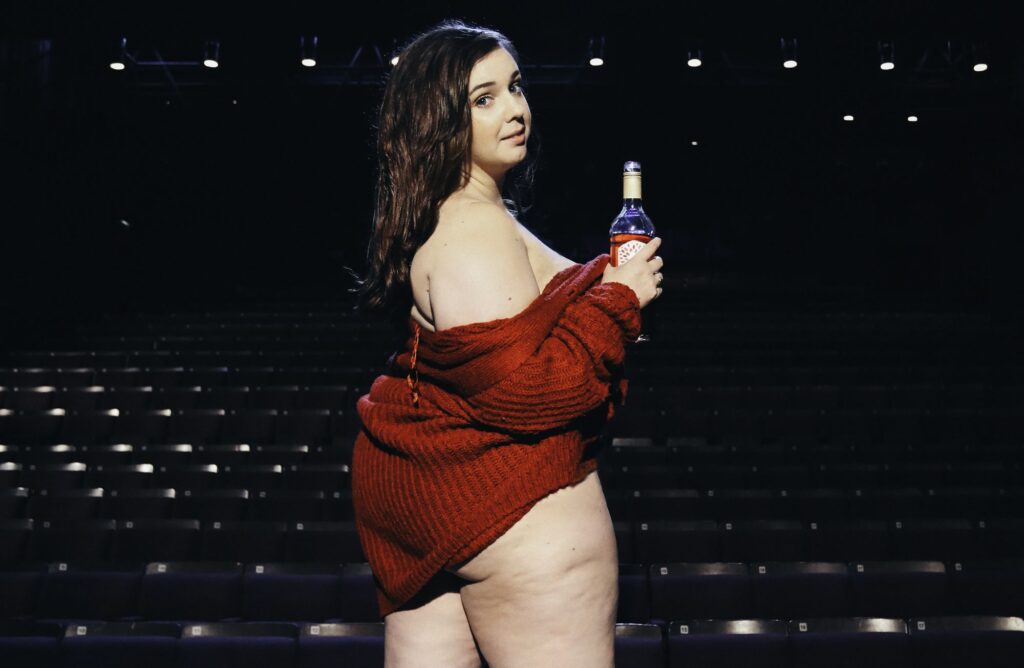
At the age of 18, while visiting a well-known performing arts school in the UK, she was taken into a side room and shown a BMI chart. At five-foot-two and around eight-and-a-half stone she was on the higher end of average, but was told she needed to be nearer the ‘underweight’ category.
“They said they couldn’t consider me for a scholarship unless I lost a stone,” she says.
“I went home and really thought about it, but at that point I was dancing eight to nine hours a day, how could I get any smaller?”
Years later, via Middlesbrough College and a performing arts degree at Northumbria University, she would find her way back to drama school at the age of 24, but met the same stumbling block.
“They had arranged for us to meet a really top agent,” she recalls. “I asked for some career advice and was told: ‘You’re northern, fat and female and you can only be two of those three things in this industry’.”
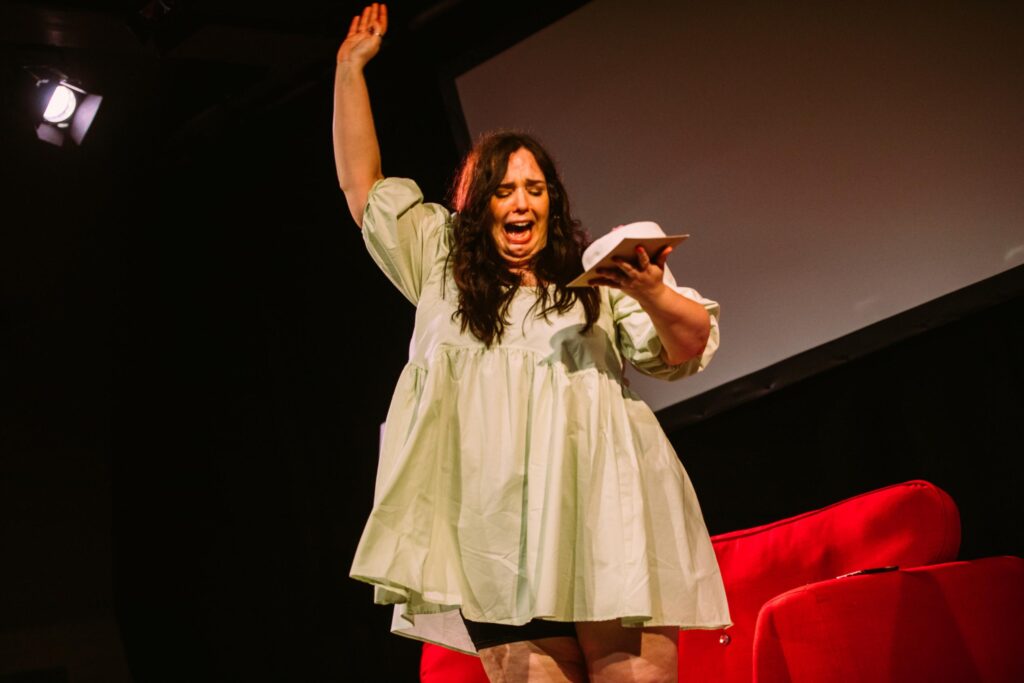
Rachel continues: “When I thought about it, it seemed to be an unspoken formula. If you look at the telly, there’s northern fat men and there’s thin, northern women and there’s fat, posh women — but you never see a northern, fat woman. So the advice was basically, ‘this is the formula and you don’t fit it’.”
Times may have moved on from the days of all-white casts and RP — received pronunciation — accents, but it’s still significantly harder for those who come from outside of London, are from lower socioeconomic backgrounds and/or don’t fit into “typical beauty standards” to break into the industry.
“There’s unwritten rules,” says Rachel. “If they want a general northern accent, they want Mancunian. If they want working class, they want someone who looks malnourished. You have to fit one of the stereotypes to get your first chance.”
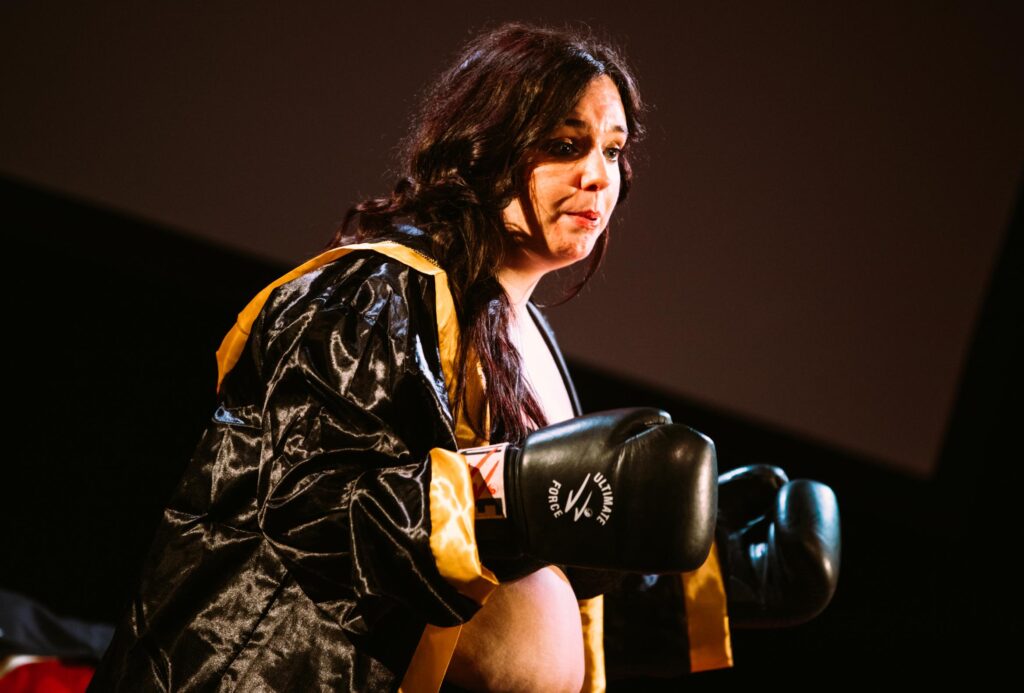
She adds: “I’ve been acting for over a decade and I still haven’t been seen and spoken on the telly at the same time, because there isn’t an obvious box to put me in.”
Fat Chance is Rachel tearing up the formula and creating her own box.
After three funding rejections from Arts Council England and a pandemic closing down theatres just as she had interest from a local venue, in 2022 Fat Chance was finally given a platform to highlight fatphobia and class stigma in the acting industry, with preview performances at Newcastle’s Live Theatre and a month-long run at the Edinburgh Fringe.
- Read more: Kate’s homecoming is headline news
- Read more: Unlucky break has silver lining
The show also documents Rachel’s own changing relationship with her weight, from a serial dieter (you name it she’s done it — and no, she wouldn’t recommend any of them), to finally finding acceptance of her size. Since she stopped punishing her body with fad diets and started listening to it more intuitively, Rachel has remained a size 18 and feels comfortable in her skin.
The show also gives us all cause for reflection on what ‘healthy’ looks like. The BMI scale, for example, now a cornerstone of medical practice, has actually been said to be a “poor measurement” of health and “not a good indicator” of mortality risk. Created by measuring the skulls of white men, it has never been adapted to allow for biological differences in women or people of colour.
Rachel may not have been seen and heard on TV at the same time, but she has worked almost consistently for the last 10 years — not bad considering that statistics show only 2% of actors are ever in employment and around three quarters give up within three years of leaving drama school.
Her first short film, Bin Day, was picked up by BBC iPlayer and won Best Short Film at the North East International Film Festival and Best Screenplay at the London Festival of Cinema & Northern Festival of Cinema. Alongside winning awards for her directing, last year Rachel was selected as a BBC Development Fund Comedy Creative 2023 and is now adapting her own work for the screen.
But that spark of an idea which came to her on honeymoon stuck around.
“I suppose it was determination,” Rachel says. “I’ve always felt like the limiting beliefs have come from the people around me, rather than from me. I’m really pig-headed, so if someone tells me I can’t do something, I’m like, ‘f****** watch me!”
The UK tour of Fat Chance kicks off on International Women’s Day (March 8) with dates across the North East
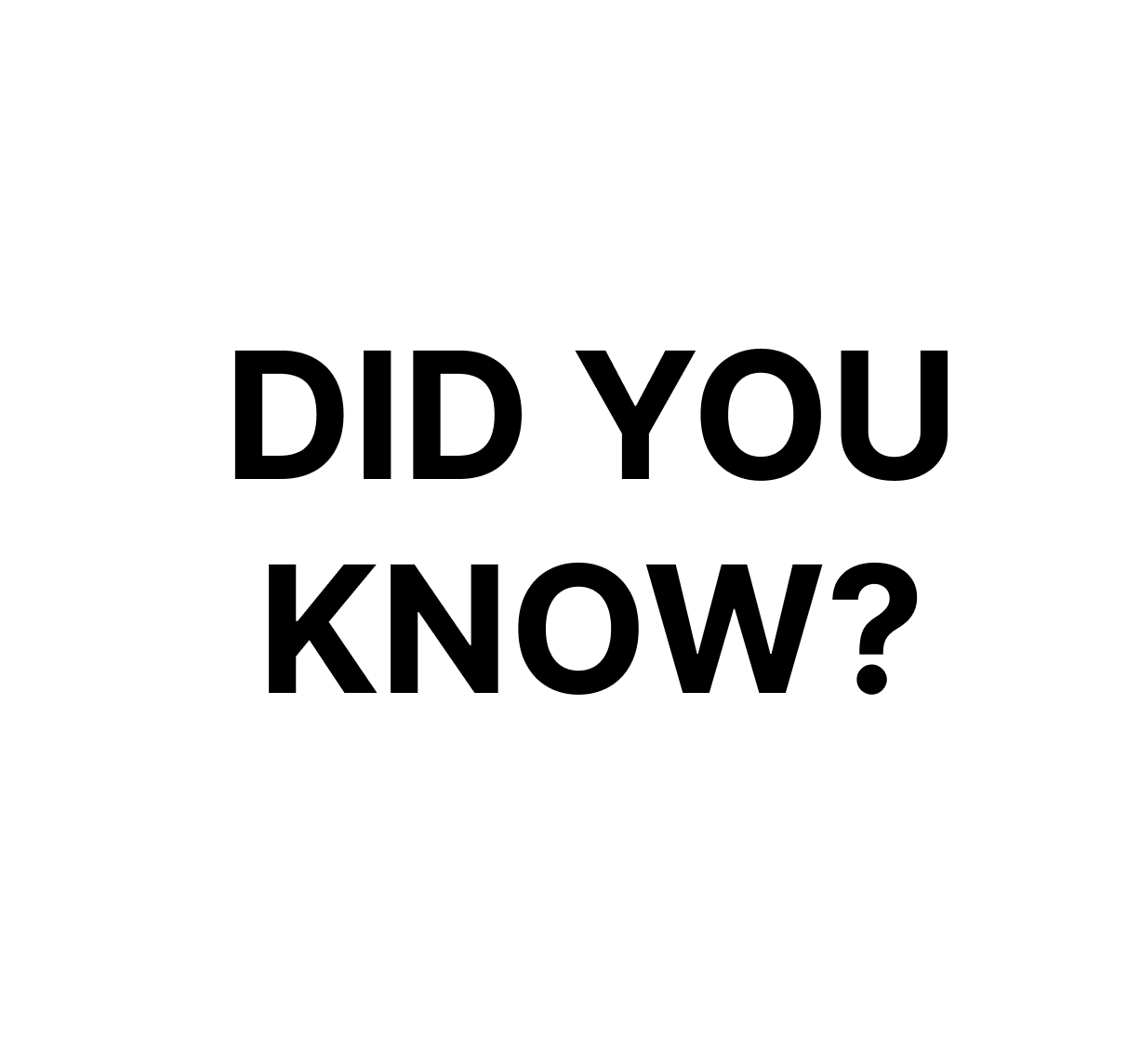
Gateshead College was awarded the highest grade of ‘strong’ by Ofsted for meeting employer skills needs, with the report acknowledging how embedded this approach is across the organisation.


